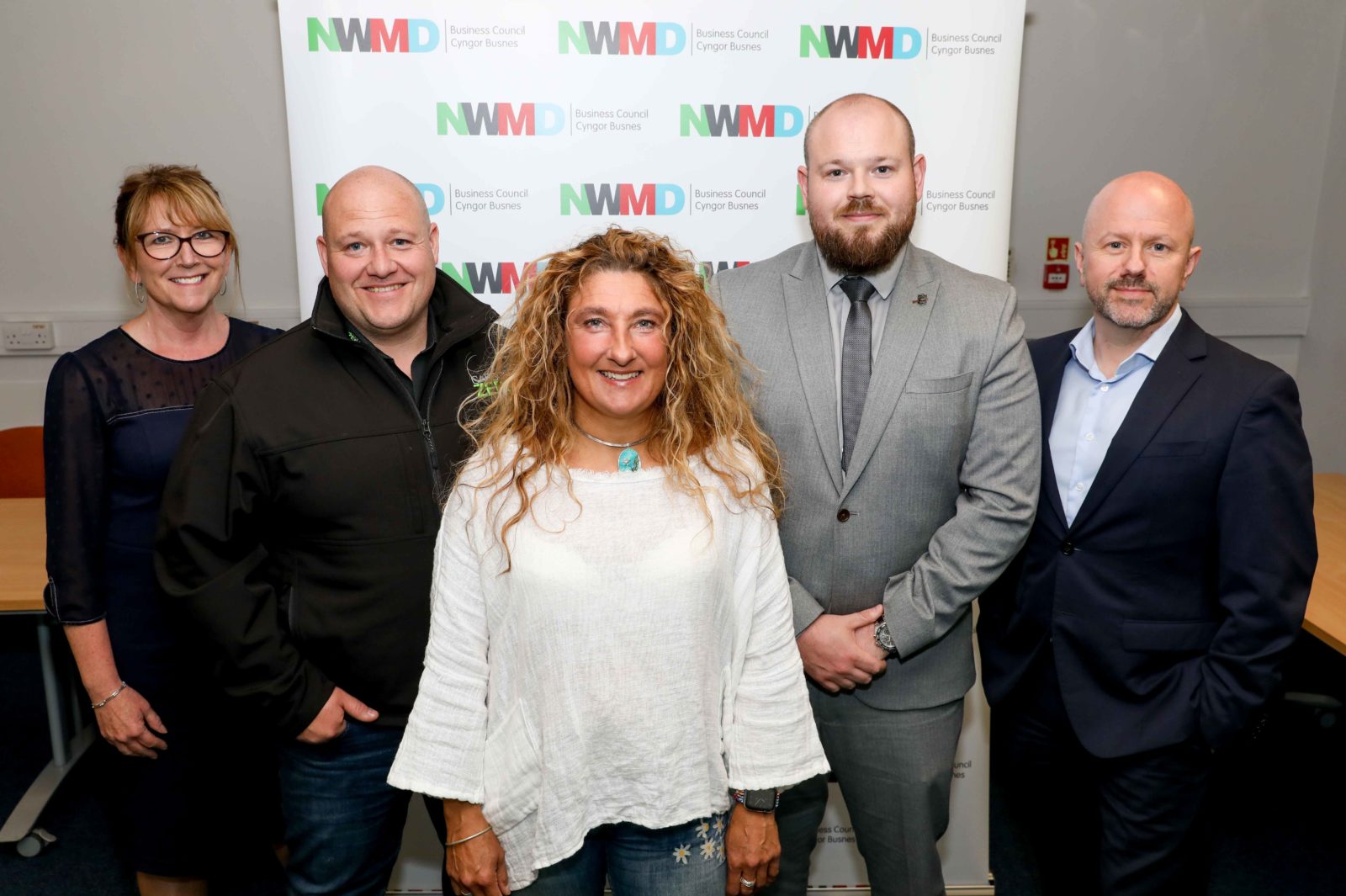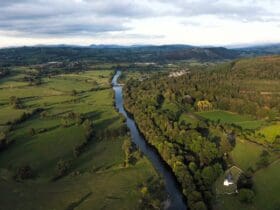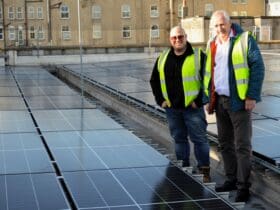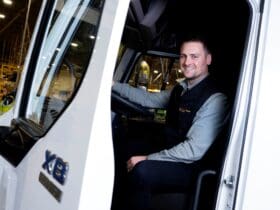Business leaders have launched a major campaign to help North Wales reach net zero status.
The driving force behind the crusade is the North Wales Mersey Dee Business Council who say an environmentally-responsible approach also makes sound commercial sense.
The group has brought together the region’s most forward thinking entrepreneurs working collectively to achieve a greener future.
Among their aims is to jointly lobby governments, local authorities and key figures in industry urging them to further invest in the development of carbon-neutral technologies.
Around 30 local enterprises contributed to the inaugural Net Zero North Wales meeting at the Conwy Business Centre in Llandudno Junction with some attending in person and others virtually.
They included some of the region’s Net Zero leaders – companies with a track record of working to reduce their carbon footprint while improving productivity at the same time.
The campaign will focus on several key areas for businesses and not for profit organisations, including the development of low carbon and renewable energy supplies.
This will include looking at hydrogen as a potential fuel source, improving electric vehicle recharging infrastructure, on-site or local energy generation, energy efficiency and retrofit schemes for properties.
They will also look for ways to help the transport sector become less carbon reliant, and for the fostering of a ‘circular economy’ to reduce waste and advance recycling schemes.
Business Council chief executive Ashley Rogers said by working together North Wales companies and not for profit organisations presented a stronger voice as they pursue crucial goals to keep the local and global environment safe for future generations.
Many local businesses had already received recognition for work they have put in towards becoming carbon neutral, such as through the use of solar technologies at their premises, use of electric vehicles and introduction of recycling protocols.
Mr Rogers said: “They are widely recognised as local pioneers in promoting clean energy and sustainable production methods which still retain profitability. We can all learn from their experiences and from each other as we go forward. This is the basic concept behind the Net Zero North Wales network and we are calling on organisations across the region to get involved”
Clare Budden, group chief executive for ClwydAlyn Housing and Business Council chair, was excited to see so many different spheres of business represented at the meeting.
She said: “It’s crucial we share ideas, lobby influential authorities and come up with innovative ways in which the whole of our region’s community can benefit from the campaign to dramatically reduce our carbon footprint.
“I am glad to say that the social housing sector is already working innovatively and playing a leading role in the race to achieve a net zero North Wales.
“Social landlords are investing huge amounts of money into decarbing existing properties and building new energy efficient, low carbon homes which is not only helping in terms of climate change but also tackling fuel poverty at the same time.”
Among those at the inaugural meeting was Anglesey Sea Zoo owner Frankie Hobro who has been outspoken about the need to attain Net Zero status since she took over the zoo more than a decade ago.
With a career background in island conservation management, she made becoming carbon neutral a business priority and recognised the potential of using the zoo’s green credentials as a successful marketing tool.
She turned the zoo into the first fully solar powered aquarium in the UK and switched the focus from tropical species to native British species.
She said: “People said I was mad to introduce solely local species and that no-one was interested in them but I proved them all wrong. It’s been a huge success at the same time as being more ethical and kinder to the environment.
“All our water is pumped in from the Menai Strait so our marine displays live in conditions totally natural to them. We are more sustainable and we also lead community education and marine conservation projects including captive breeding programmes with a view to re-introducing endangered natural species into the wild.
“Some of the rarest species on the planet live on our doorstep but this is not widely known. We have two of the world’s most endangered seahorse species right here in Anglesey. We’re working hard to breed them in the protected environment of the zoo so we can re-introduce these species in significant numbers back into their natural habitat in North Wales and beyond.”
Frankie has installed 50KW of PV solar panels to power the aquarium and is working on a £1million extension plan bringing further green technologies to the tourist attraction.
She added: “It’s vital for businesses to invest in green technologies. We’re at a stage now where we are in the last chance saloon and if we don’t act it spells disaster for the local environment and our entire planet.”
Gareth Jones, managing director of renewables company Carbon Zero said they had never been busier as interest in renewables rockets across North Wales, Merseyside, Cheshire and the whole of the north west.
Carbon Zero, which employs 25 people operates from three depots in St Asaph, Mochdre and Deeside and is soon to open a fourth branch to keep up with demand.
Mr Jones, a multi-award winning entrepreneur well known in the local construction and renewables industry, said: “Since the Climate Change Conference COP26 there’s been heightened realisation of the desperate state our planet is in, coupled with the recent pressures imposed by the cost of living crisis.
“So, more people are moving towards renewables to power and heat their homes and businesses.
“That in itself is good news but there’s still so much more to be achieved before the country can reach its carbon neutral goal. That’s why the new Net Zero North Wales campaign is so important.
“If the Covid pandemic has taught us anything it’s that we need to act in unison to get things done. The climate crisis is another global emergency of a massive scale which needs all our resources, our combined knowledge, skills and influence to push forward the common agenda and help reverse the disaster scenario facing our planet.”
Mold-based Celtic Financial Planning have adopted a corporate social responsibility framework for the business in which they strive to offset their carbon footprint by innovative thinking.
Co-owner and Director Rob Lewis said: “Businesses often don’t realise how much they can help towards achieving Net Zero just by making small changes.
“For instance, we switched to using recycled paper, using Fairtrade products, working from home as often as we can, and we work with North Wales Wildlife Trust to plant a native British tree for every new pension and investment client we take on.
“It soon builds up. We’re also looking at use of electric vehicles and installing electric charger points at our premises.
“We also help clients who require it to find ethical investment sources, which in turn boosts those national and global companies working hard to reverse the effects of climate change.
“Not only does our approach give us personally greater satisfaction but on a commercial level it’s profitable.
“Our ongoing customer growth levels are evidence that many people turn to us for advice because they admire our environmentally friendly policies.”
Also on board was Chris Owens, managing director of Llandudno-based coach company Alpine Travel who said: “We’re stronger if we act as a group.
“By talking and sharing our concerns we become aware of difficulties each business faces in working to become carbon neutral.
“We can then support each other in campaigning to achieve the necessary changes which need to be made at a national level.
“Many people don’t realise the coach industry is entirely different to the bus network in its needs and the practical measures required for it to further reduce its carbon impact.
“Coaches cannot simply return to the depot each night to be recharged. They may be in different parts of the country or even on tour in a completely different country. One of our fleet could be in Manchester while the other is in Monte Carlo.
“Tackling this requires a more expansive approach, a different kind of thinking. We must influence investors in green technologies to look at our sector’s unique set of circumstances and develop a system which works for us.”








Leave a Reply
View Comments